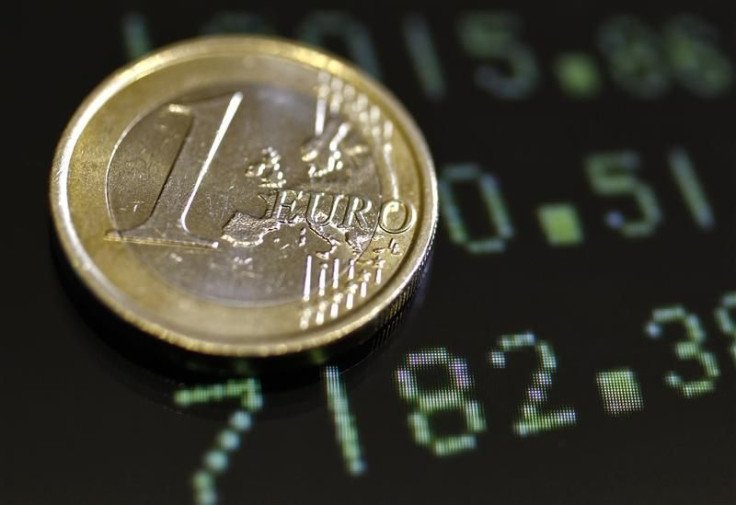Euro Rallies on Fitch, IMF Comments, but Risks Selling

REUTERS - The euro rallied broadly on Wednesday after a ratings agency appeared to soften its stance regarding its outlook on Italy, while a media report that the IMF would boost its funding capabilities also pushed the single currency higher.
The single currency kept its distance from a 17-month low versus the dollar, but many in the market believe its gains this week are fleeting, and that the single currency may be in for another beating if the euro zone debt crisis deteriorates.
Investors resumed cutting back bets to sell the euro after an analyst at Fitch said the ratings agency did not expect Italy to default. In earlier trade, the euro sold off after a senior director said a two-notch downgrade to Italy was an option.
Fitch's comments came just days after rival S&P on Friday cut its credit rating for Rome and eight other countries. S&P on Monday cut its AAA rating of the EFSF European bailout fund.
Traders said a media report that the IMF would propose increasing its lending pool drove the euro higher, while solid demand at German and Portuguese bond auctions bolstered the single currency to near session highs.
The headline about the IMF wanting to expand its lending facility has helped risk to recover quite brutally across the board, said Sebastien Galy, currency strategist at Societe Generale.
People were trying to fade risk (in earlier trade) by taking profits on the euro, and as usual, they got burned a bit.
The euro traded at $1.2820, up 0.7 percent on the day after jumping to a session high of $1.2845. Traders said the single currency was finding support from bids around $1.2810.
Its gains were broad-based, with the euro climbing more than 0.5 percent to 98.60 yen, backing off an 11-year low plumbed earlier in the week, while it recovered from a record trough hit against the Australian dollar.
The dollar took a hit as a result of the euro's gains. Against a currency basket, the U.S. currency fell 0.5 percent to 80.779, although it hovered in range of a 16-month high hit on Friday. It slipped a touch to 76.70 yen.
GREEK RISKS
Also supporting the euro was solid demand seen at a German auction of two-year notes, while Portugal managed to sell short-dated paper without a hitch despite being downgraded to junk status by S&P late last week.
Analysts believe euro zone debt auctions, even for weaker countries, have been going well due to demand from banks, which many suspect have ample funds to invest in domestic debt after taking up a massive amount of three-year ECB loans last month.
But despite its rally this week, investors believe the euro will remain vulnerable to more evidence of fiscal and economic weakness in the region, and see more selling if Greece is unable to reach a debt deal with its creditors.
This would raise the chance of default.
Greek bond negotiations could trigger more euro weakness as they have to close a deal soon, before Greek debt repayments are due in March, said Richard Falkenhall, currency strategist at SEB in Stockholm, referring to talks beginning in Athens on Wednesday.
If they don't come up with a solution soon, it could result in more euro weakness.
© Copyright Thomson Reuters 2024. All rights reserved.











